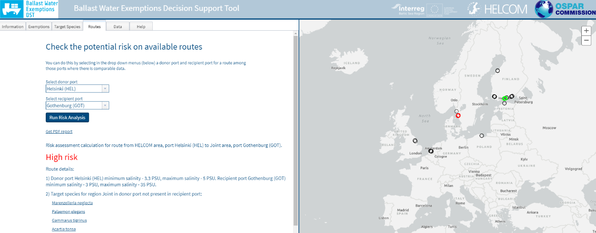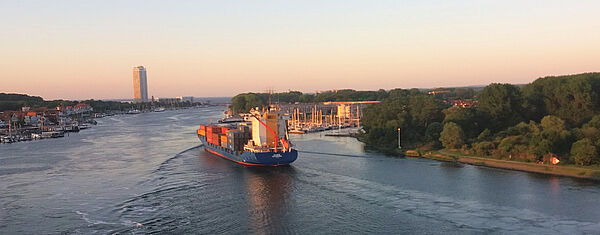Interreg fights aliens in the Baltic Sea
Aliens in the Baltic Sea waters
Alien species in the marine environment do not recognise national borders. The world shipping fleet today creates a fast-moving and still increasing highway for these organisms, as they can attach to ship hulls, hide in niches, and live in the ballast water tanks of ships. Once transported to a new area, these aquatic organisms may simply colonise it, making their eradication practically impossible. The only way to stop the invasion of alien species is to prevent their introduction in the first place.
Alien species pose a substantial threat to the aquatic biodiversity and lead to the decline of native populations, negatively affecting the ecosystem. The United Nations International Maritime Organization (IMO) introduced the Ballast Water Management Convention (2017) as well as the Guidelines for Biofouling Management of Ships (2011) and Recreational Craft (2012) to help prevent alien species from spreading in the world.
How to put political agreements into practical actions?
All countries in the Interreg Baltic Sea Region Programme area have ratified the IMO Convention on ballast water. Still there are challenges to master. How to implement the convention in a harmonised way in the Baltic Sea region? How to manage exemptions in routes where risk of spreading marine organisms is low? How to implement the IMO Guidelines and Guidance for Biofouling Management in the region although they are not legally binding instruments? These complex challenges require a comprehensive regional approach.
COMPLETE looks for solutions
In the Interreg project COMPLETE, scientists from seven Baltic Sea region countries cooperated with competent environmental and maritime authorities to find solutions for managing the risks of alien species transported by shipping. Shipowners, port authorities, companies providing hull cleaning services, boating associations and others had cooperated already before the COMPLETE project. This helped to identify knowledge gaps based on the needs of all involved.
Among the concrete solutions that the COMPLETE project has developed are: tools for harmonised implementation of the IMO Convention, a proposal for a regional biofouling management roadmap, and a proposal of a monitoring programme of non-indigenous species for the Baltic Sea.
Atte Lindqvist, project manager at one of the partner organisations, Keep the Archipelago Tidy Association in Finland: “The Baltic Sea is important to us, our members and target groups, and therefore it is essential to treat all possible threats to the region’s nature. Even though the non-indigenous species problem is a new theme for our organisation, it suits our activities well. The project COMPLETE has given us a new set of skills and a great amount of knowledge for our organisation to communicate to our audiences.”
Upgrade the existing tools
The IMO Convention on managing ballast waters allows for exemptions for low risk routes between two ports. These exemptions consider the environmental factors, like the difference in salinity between ports/locations as well as the presence of specific target species. HELCOM and OSPAR Commission agreed on a joint harmonised procedure as a basis for granting these exemptions already in 2013. Port administrations across the region use this procedure to grant exemptions in a coherent manner. With this tool, shipowners can easily apply for these exemptions. However, the tool, the risk assessment scheme and the criteria to select target species required an update.
COMPLETE delivered scientific knowledge to back up and further develop the risk assessment tool. The interface of the tool is now linked to the online information system about alien species (AquaNIS) to better use the existing monitoring data. Thanks to this, the most recent information about the species helps to assess whether the risks for applying exemptions are low enough, and can be used for sending an early warning to maritime and environmental authorities.

